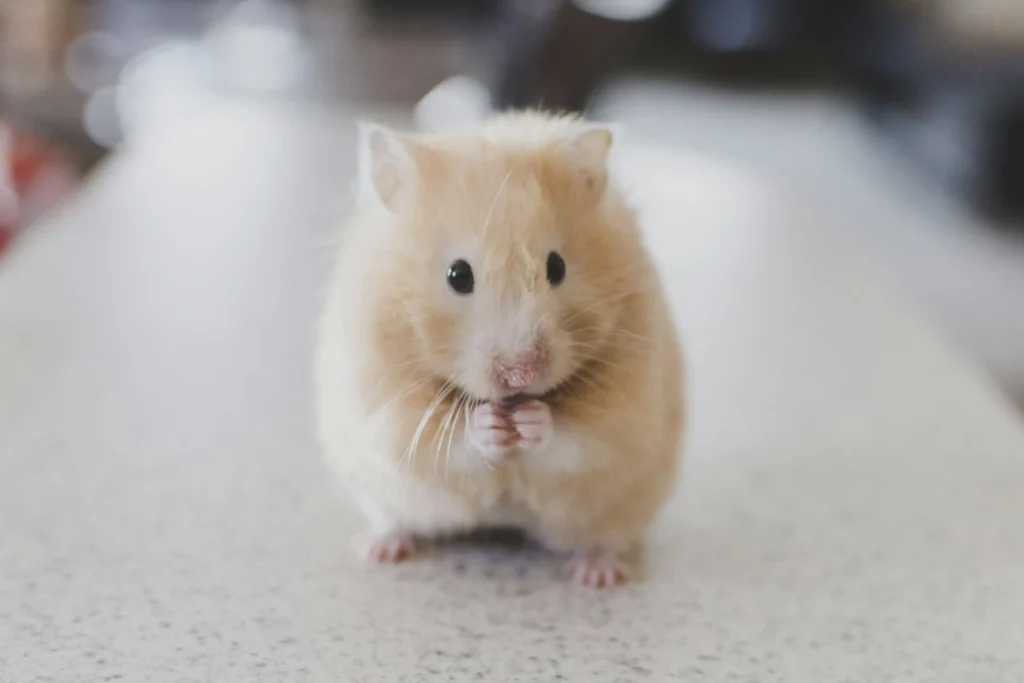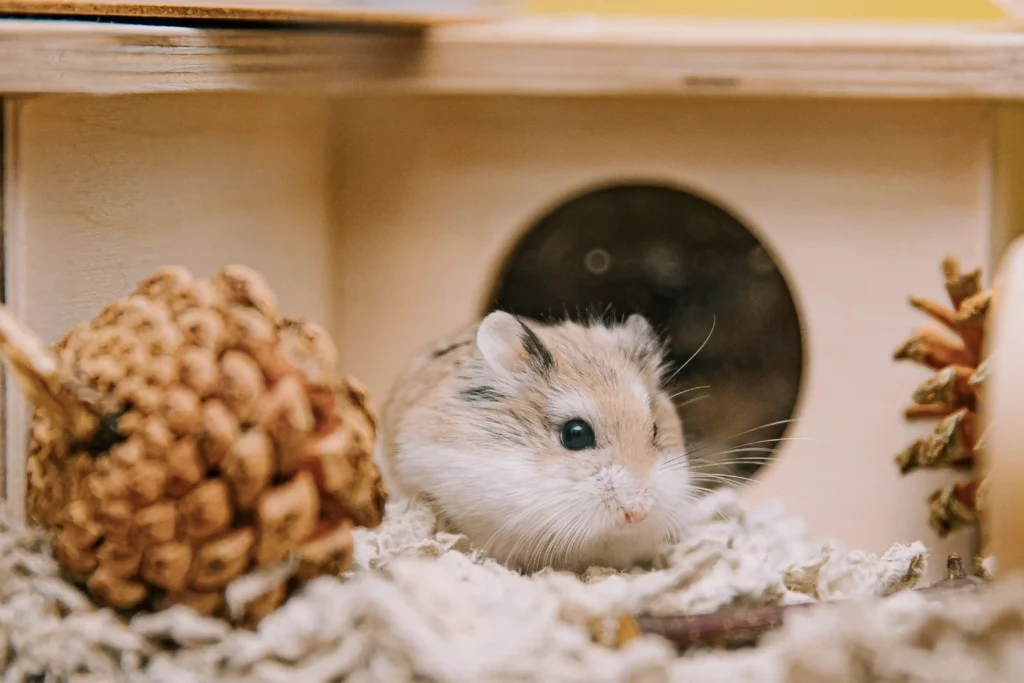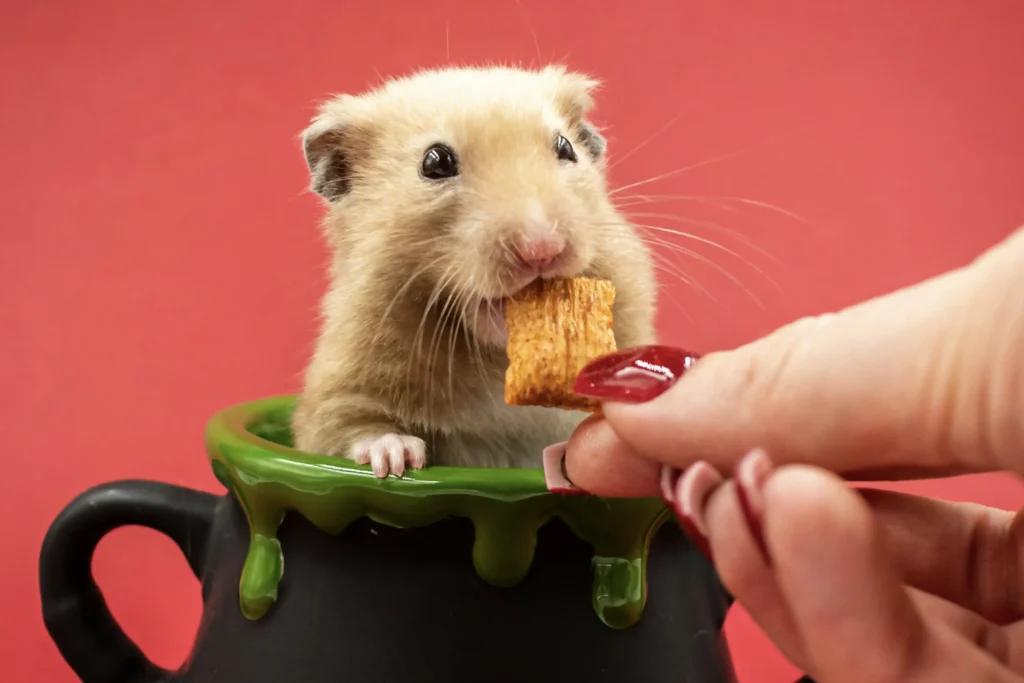Hamsters are popularly known for their adorable appearance and low-maintenance care. In Singapore, these furry companions are cherished for their playful antics and gentle nature. Whether you’re considering adopting a hamster or already have one as a pet, understanding their needs, behaviours, and care requirements is crucial. This comprehensive guide covers everything you need to know about keeping pet hamsters in Singapore, from choosing the right hamster to creating a suitable habitat and ensuring their well-being.

1. Introduction to keeping pet hamsters:
Popular Species
The most common pet hamster species in Singapore include Syrian (Golden), Dwarf (Winter White and Campbell’s), and Roborovski hamsters. Each has unique characteristics in terms of size, temperament, and care requirements.
Lifespan and General Characteristics:
Hamsters generally live 2-3 years, though some dwarf species can live up to 4 years with proper care. They are nocturnal creatures, meaning they are most active during the evening and night.
Temperament:
Hamsters are generally solitary animals and may exhibit territorial behaviours if housed together. They can be gentle and curious with regular handling and proper socialisation from a young age.
2. Choosing a Hamster
Considerations:
When choosing a hamster, consider factors such as species, age, and temperament. Syrian hamsters are typically more solitary, while dwarf species can be kept in pairs or small groups under proper conditions.
Adopting vs. Buying:
Adoption from shelters or rescues is a compassionate choice that gives a home to hamsters in need. In Singapore, you can adopt hamsters from Hamster Society Singapore (HSS), the Society for the Prevention of Cruelty to Animals (SPCA) or Facebook groups like Little Hammy Rescue Singapore (LHRS). There is a $20 adoption fee for HSS and a $10 adoption fee for SPCA. Please ensure you have everything a hamster needs before adopting one.
Handling and Taming:
Approach your hamster calmly and handle them gently to build trust. Taming sessions should be short and frequent to help them become accustomed to human interaction.
3. Setting Up Their Habitat
Cage Requirements:
Choose a spacious cage with a solid bottom and wire top to prevent escapes. The cage should be well-ventilated and escape-proof, with enough space for exercise and exploration.
Bedding and Substrate:
Use dust-free bedding such as aspen shavings or paper-based products. Avoid cedar or pine bedding, which can be harmful to hamsters’ respiratory systems.
Enrichment and Accessories:
Provide hiding places, tunnels, chew toys, and a solid exercise wheel (preferably 8-12 inches in diameter for Syrians, smaller for dwarf hamsters) to keep them mentally stimulated.

4. Hamster Diet and Nutrition
Basic Diet:
Offer a balanced diet of commercial hamster pellets supplemented with fresh vegetables, fruits, and occasional protein sources like cooked eggs or mealworms. Fresh water should always be available in a drip-proof bottle.
Food Safety:
Avoid feeding sugary or fatty treats excessively, as this can lead to obesity and dental problems. Monitor food intake to ensure a healthy weight.
Chewing Needs:
Provide chew toys and safe wooden items to help wear down their continuously growing teeth.
5. Health and Wellness
Signs of Illness:
Watch for signs of illness such as lethargy, loss of appetite, sneezing, or unusual discharge. Prompt veterinary care is essential for diagnosing and treating health issues.
Regular Check-ups:
Schedule regular veterinary check-ups to monitor your hamster’s health and discuss any concerns with a veterinarian experienced in exotic pet care.
Hygiene:
Clean the cage regularly, replacing bedding and washing food and water containers to prevent bacterial growth and maintain a clean environment.

6. Bonding and Interaction
Building Trust:
Spend time with your hamster daily to build a bond based on trust and positive experiences. Avoid sudden movements or loud noises that may startle them.
Playtime:
Provide supervised playtime outside the cage in a safe, hamster-proofed area. Use tunnels, mazes, and toys to encourage exploration and physical activity.
Respect Their Nocturnal Nature:
Understand and respect that hamsters are most active during the night. Avoid disturbing them during their daytime sleep cycles.
7. Legal Considerations and Responsible Ownership
Pet Regulations:
Familiarize yourself with local regulations regarding pet ownership and keeping hamsters in Singapore. Ensure you meet all legal requirements for keeping a pet hamster.
Responsible Care:
Commit to providing lifelong care for your hamster, meeting their physical, emotional, and social needs. Educate yourself about proper care practices and seek advice from reputable sources.
Community Support:
Join local hamster clubs or online communities to connect with other hamster owners, share experiences, and learn from each other. In Singapore, there are hamster-related groups you can join where individuals with shared interests in hamsters gather to ask questions and share tips and advice about hamster care. Some of Singapore’s hamster-related groups you can join on Facebook:
– Little Hammy Rescue Singapore


